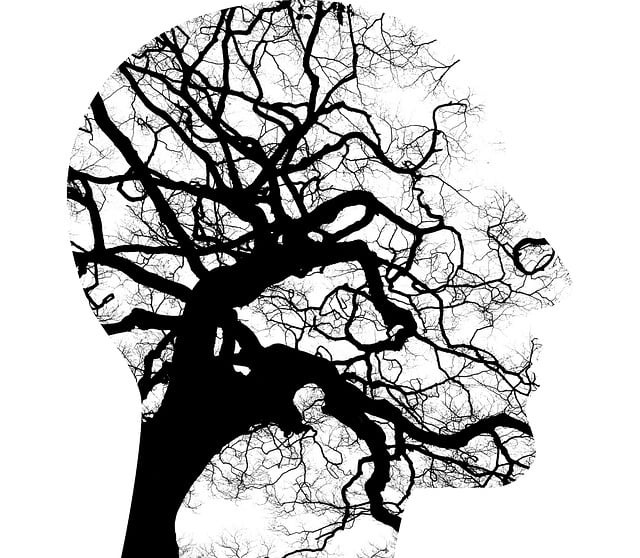Therapy for Adults French Speaking: Community Outreach Strategies for Sustainable Support
Understanding language barriers, cultural differences, and stigma hindering access to mental health…….
In the quest for holistic healthcare, therapy has emerged as a powerful tool, catering to diverse populations across the globe. Among the many specialized therapeutic approaches, “Therapy for Adults French Speaking” stands out as a unique and essential service, particularly in multilingual societies. This comprehensive guide aims to explore every facet of this specialized field, offering insights into its practice, impact, and future directions. By delving into its historical roots, global reach, economic implications, technological innovations, policy frameworks, and real-world applications, we will uncover the multifaceted world of therapy tailored for French-speaking adults.
“Therapy for Adults French Speaking” refers to a specialized form of psychotherapy designed to cater to individuals who are fluent in the French language and require therapeutic support while maintaining their linguistic identity. This approach recognizes the unique cultural and linguistic nuances that can influence an individual’s mental health and well-being. The core components include:
The concept of therapy has evolved over centuries, with roots tracing back to ancient civilizations. However, its formalization as a profession gained momentum in the late 19th and early 20th centuries. The field of psychotherapy began to take shape, emphasizing talk therapy and behavioral interventions. As societies became more diverse, the need for culturally sensitive therapeutic practices became evident, especially within French-speaking communities.
In the mid-20th century, the decolonization process and subsequent migration patterns led to a significant growth in multilingual populations, particularly in countries like Canada, France, and various parts of Europe. This shift prompted therapists to adapt their practices to meet the unique needs of French-speaking adults who faced cultural barriers and language challenges in accessing traditional therapy.
“Therapy for Adults French Speaking” has made significant inroads globally, particularly in regions with substantial French-speaking populations. The World Health Organization (WHO) estimates that over 75 million people worldwide speak French as a native or second language, making it one of the most widely spoken languages globally. This widespread linguistic distribution translates into a diverse range of cultural backgrounds and experiences among French-speaking adults seeking therapy.
While the demand for this specialized service is growing, regional disparities exist:
| Region | French Speakers (Estimated) | Access to Therapy | Challenges |
|---|---|---|---|
| North America (Canada) | 7.5 million | Increasing availability, but still lacking in certain urban centers | Language barriers and cultural stereotypes |
| Western Europe | Over 60 million | Well-established in major cities like Paris, Brussels, and Montreal | Stigma associated with mental health seeking |
| Central Africa | Approximately 40 million | Limited resources and expertise concentrated in urban areas | Political instability and economic challenges impacting healthcare access |
| France | Around 67 million (native and non-native speakers) | Widely accessible through public healthcare system | Diversity of cultural backgrounds requires tailored approaches |
Several global trends are shaping the future of “Therapy for Adults French Speaking”:
The global mental health market, valued at USD 428 billion in 2020 (Source: Grand View Research), presents a significant opportunity for specialized therapeutic services like “Therapy for Adults French Speaking.” While exact market data specific to this niche is limited, the increasing demand for culturally sensitive care suggests growing investment and interest.
Integrating therapy tailored for French-speaking adults into healthcare systems can have several economic benefits:
Funding sources for “Therapy for Adults French Speaking” include:
Technology plays a pivotal role in enhancing the accessibility and effectiveness of “Therapy for Adults French Speaking”:
Technological innovations have led to:
In the future, artificial intelligence (AI) and machine learning algorithms may play a significant role in:
The regulation of therapy, including “Therapy for Adults French Speaking,” varies across jurisdictions:
Policies and regulations shape:
One of the primary challenges is ensuring equal access to “Therapy for Adults French Speaking.” Language barriers and cultural stereotypes can deter individuals from seeking help:
Criticisms of this specialized therapy include concerns about cultural adaptation and potential for miscommunication:
In a multicultural city like Montreal, the demand for French-speaking therapy services is high. A community-based organization, Centre de Thérapie Culturellement Sensible, offers a range of therapeutic options tailored to French speakers. Their approach includes:
This model has been successful in engaging hard-to-reach populations and improving access to care. Client feedback highlights the importance of cultural sensitivity and language compatibility in fostering trust and open communication.
In rural areas of France, where mental health resources are scarce, telehealth has emerged as a game-changer. A pilot program introduced remote therapy sessions for French speakers living in remote villages. The initiative:
The program’s success led to increased demand, prompting the expansion of telehealth services across the region. Client satisfaction surveys revealed improved access and reduced anxiety related to travel, highlighting the positive impact on mental health outcomes.
The future of “Therapy for French-speaking adults in diverse settings. The data below illustrates the global trend:
“Therapy for Adults French Speaking” represents a specialized field that plays a vital role in promoting mental health and well-being among French-speaking adults worldwide. By addressing language barriers, cultural nuances, and unique challenges, therapists contribute significantly to improved quality of life. As the field evolves, staying informed about global trends, embracing technological advancements, and prioritizing cultural sensitivity will be essential for professionals in this domain.
The future of therapy lies in its ability to adapt, innovate, and reach diverse populations effectively. By continuing to explore and implement best practices, we can ensure that “Therapy for Adults French Speaking” remains a dynamic and impactful field, contributing to the overall mental health and resilience of French-speaking communities globally.

Understanding language barriers, cultural differences, and stigma hindering access to mental health…….